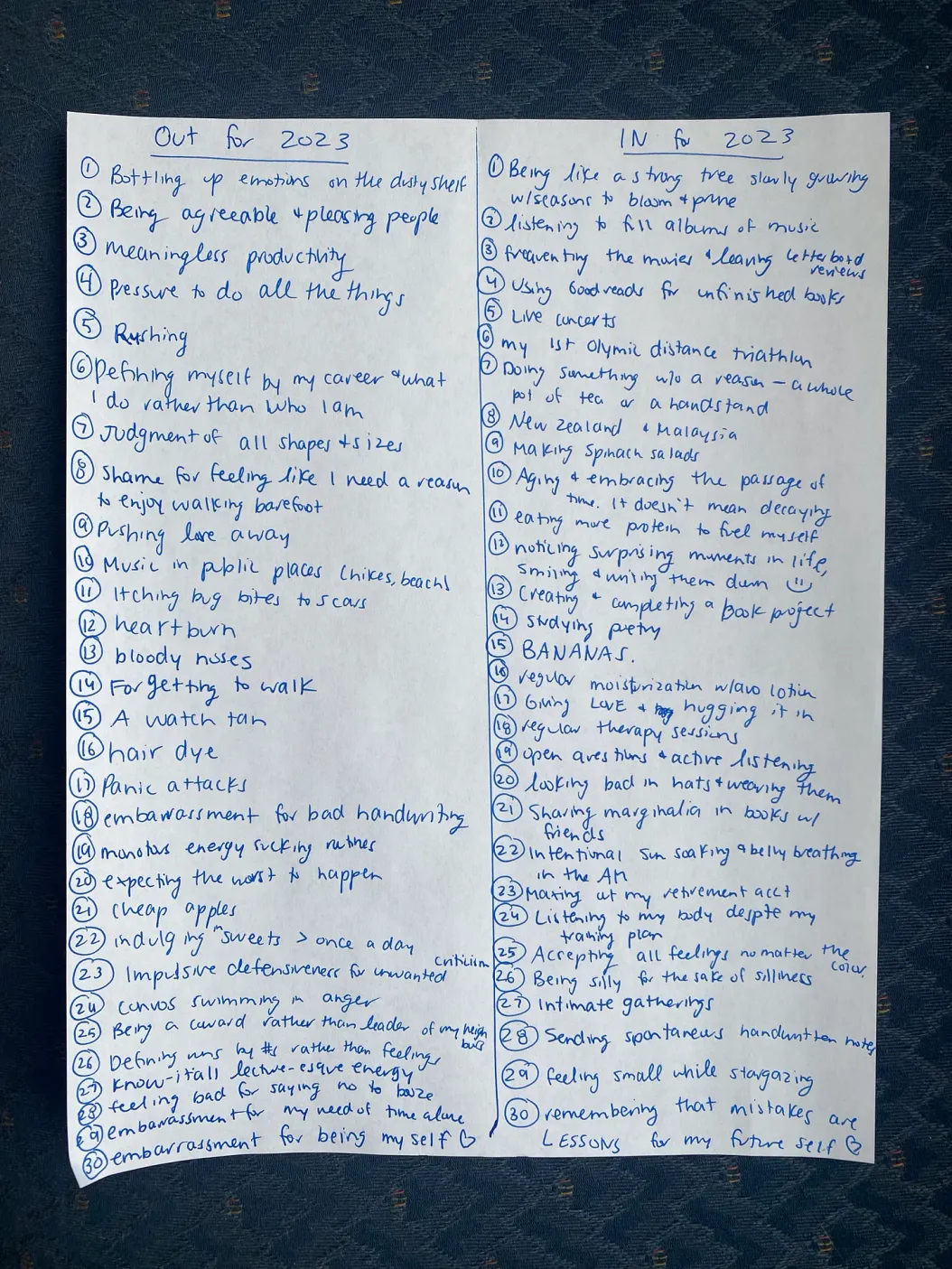Hello fellow learner,
Greetings from Grosse, Pointe, Michigan.
I hope you've had a great week and are excited for the next one. As I mentioned last week in Letter #16, I will be starting altMBA this week and I am beyond excited to start. I applied back in February without knowing if it would be worth it. After my athletic race and travel plans to the Netherlands were canceled, it became a great opportunity for me to invest in my education and professional development.
Now, let’s jump into letter #17 from a learn-it-all. Enjoy!
Some things I’ve learned through…
♥️ Doing
I am moving back to Chicago this week, so the majority of my week was soaking up quality time with my family. This includes multiple movie nights and walking our dogs Paisley and Polo each night.
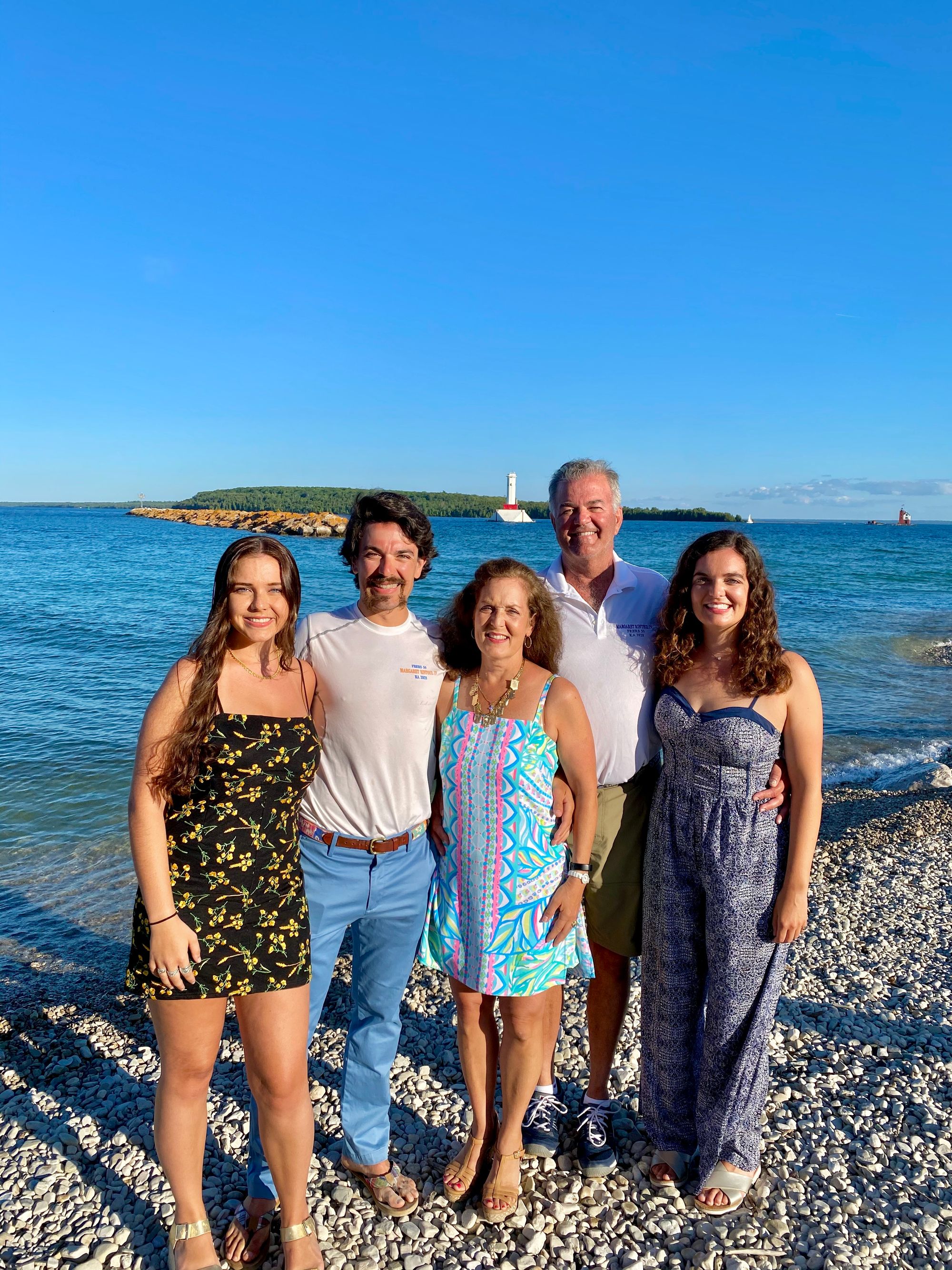
I made tacos with my sister and experimented again with the tropical salsa recipe mentioned in Letter 12. I even convinced Stephanie to swim some laps with me at the pool for her first time in six years. The scent of chlorine got me thinking about how memories are strongly associated with scents.
🖊 Writing
There are many beautiful sights while sailing the sea; the starry lit sky, the budding sunrise, and birds flying overhead...
It’s hard to appreciate all of those when vomiting over the side of the boat.
Last weekend, I raced 266 nautical miles across Lake Huron in Michigan.
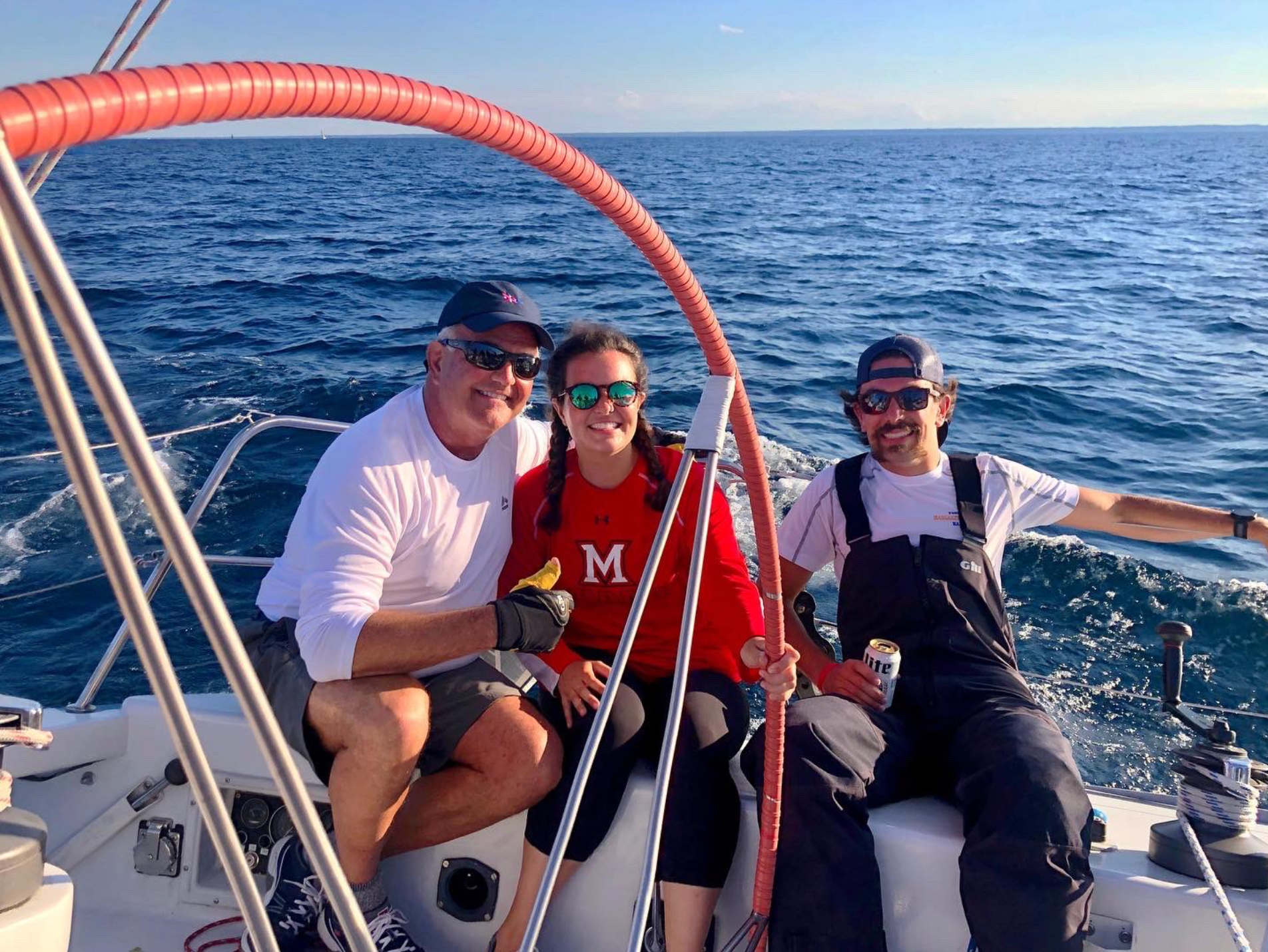
At the start, pictures captured bright smiles of excitement for the journey ahead. What wasn’t accurately captured was the turbulent in-between. I remember a wonderful two-day race, but also thoughts of quitting and jumping ship. There was a cycle of misery. My forehead pounded with a headache.
I was dehydrated because I hadn't eaten or drank.
I didn’t want to upset my stomach and create more nausea.
I barely slept and the one time I did, I woke up to a gallon of water drenching my dry clothes.
🎧 Listening
I listened to Ask Me Anything podcast with Brené Brown as she answered questions from her listeners on becoming shame resilient. We all deserve to ask for what we need. Normalize saying that we all have things that are hard and we all have permission to ask for what we need. If we are too much for people, those are not our people.
On nature vs. nurture:
What we know from neurobiology is we come into the world wired for struggle, and wired for strength. Anyone that can tell you the exact percentage of what's nature, and what's nurture, I would have to call BS on that.
We know that biology loads the gun, and environment pulls the trigger.
On growing up in a family with a powerful feeling of shame:
From the emotions we feel, to the thoughts we have, to the way our bodies function with the sounds and smells our bodies make, all of those things… I grew up in a family where nothing was normalized. Nothing. [Then] with a group of friends, they were talking about bodily functions in this really kind of laughing, normalized way. I felt both freaked out, and it was the most important moment in my life.
On healing that can intentionally take place with family and friends:
If we're willing to unlearn, relearn, learn. Make amends. Say I love you. Say I'm sorry. Say that I still want to to be in the game. I still want to learn. I still want to be better. That's up to us.
🎬Watching
I watched a TED Talk with organizational psychologist Adam Grant explaining the surprising habits of original thinkers. I find it hilarious how Grant considers himself a "precrastinator" so he never feels the impending doom hours before a deadline.
The examples that stood out to me include:
- It took Leonardo Da Vinci 16 years to paint the Mona Lisa. During this period, he was figuring other techniques to become a better painter.
- Martin Luther King was open to new ideas up until right before his speech in Wahington. He gave himself the freedom to improvise. The four words “I have a dream” were not in the original script.
- Screenwriter, director, producer, and playwright, Aaron Sorkin says that “you call it procrastinating, I call it thinking.”
My favorite quotes from Grant are:
The greatest originals are the ones who fail the most because they're the ones who try the most.
You need a lot of bad ideas in order to get a few good ones.
Procrastinating is a vice when it comes to productivity but it can be a virtue for creativity.
You don’t have to be first—you just have to be different and better.
I have been collecting favorite pieces of Grant's to curate his work for a Write of Passage assignment. If you also have any favorites from him, I would love it if you shared them by responding to this email.
📖 Reading
I read The Dip: A Little Book That Teaches You When to Quit (and When to Stick) by Seth Godin. The Dip is the long stretch between beginner's luck and real accomplishment. It is the long slog between starting when it is exciting and fun and mastery. Only the people who invest the time, energy, and effort can power through the Dip. In economical terms, the supply of these experts is scarce so they are of high demand. The Dip creates scarcity which creates value.
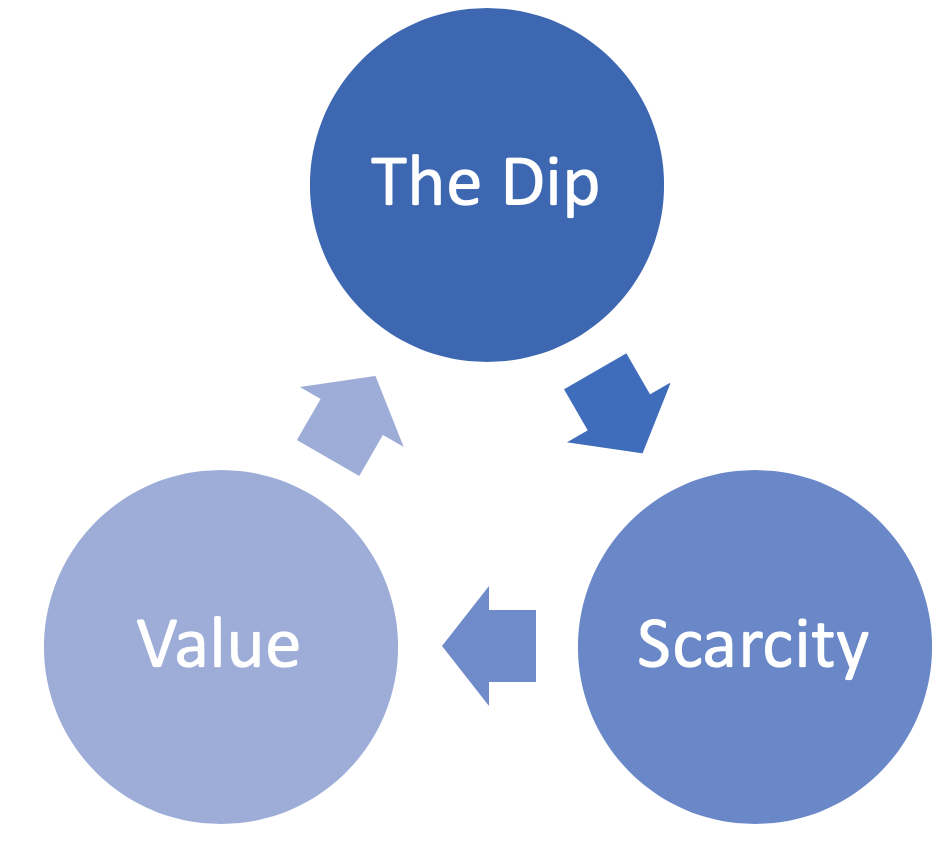
The Dip is your ally to help you get where you want to go of being a master. The Cliff is addictive and gets more painful to quit with time, like cigarettes. The Cul-de-Sac is a dead-end. These are both not your allies
Quitting is not the same as failing. It's better than coping and carrying something on, Quitting frees you up to excel at something else. Decide in advance by writing down what the circumstances are that you're willing to quit.
Failing happens when you give up, when there are no other options, or when you quit so often that you've used up all your time and resources. It's easy to wring your hands up about becoming a failure. Quitting smart [and strategically], though, is a great way to avoid failing.
They fail because they don't know when to quit and when to refuse to settle.
Quitting a job is not quitting your quest to make a living or a difference or an impact. Quitting a job doesn't have to mean giving up. A job is a tactic, a way to get to what you really want. As soon as your job hits a dead end, it makes sense to quit and take your quest to a bigger marketplace-- because every day you wait puts your goal further away.
The moment your tactics are no longer part of winning the Dip-- the moment they are in a Cul-de-Sec-- you are obligated to switch tactics.
Questions to decipher your Dip:
- Is my persistence going to pay off in the long run?
- When should I quit? I need to decide now, not when I'm in the middle of it, and not when part of me is begging to quit.
- If I quit this task will it increase my ability to get through the Dip on something more important?
- Are you avoiding the remarkable as a way of quitting without quitting? If it scares you, it might be a good thing to try.
🔎 Word to define
Cul-de-sac: A passage with only one outlet, as a street closed at one end; a blind alley; hence, a trap.
It stems from the French word dead end. Seth Godin defines it as a situation where you work and you work and you work and nothing much changes. It doesn’t get a lot better, it doesn’t get a lot worse. It just is.
🌟 Quote to inspire
Simplicity is the ultimate sophistication. - Leonardo da Vinci
💭 Question to ponder
There will inevitably be flat tires along the road ahead. Don't create a story about how life is unfair because of this. Change the tire. How you can adopt a solution-focused attitude in the days and weeks to come?
Thank you to my editors for helping to make my writing the best it can be: Tim, Ayomide, Ben, Adam, Juan David.
I appreciate you reading this! If any of the ideas resonated or you have feedback to improve, feel free to leave a comment, replying to this email, or sending me a message on Twitter @JenVermet.
Never stop learning 😁
Until next week,
Jen
P.S. if you'd like to listen to the artist I dressed up for in Halloween, once upon a time, see here.
P.P.S. for the hell of it, here’s a shot after my dad insisted to capture me saying “cheese” as the race was (finally) reaching the end.
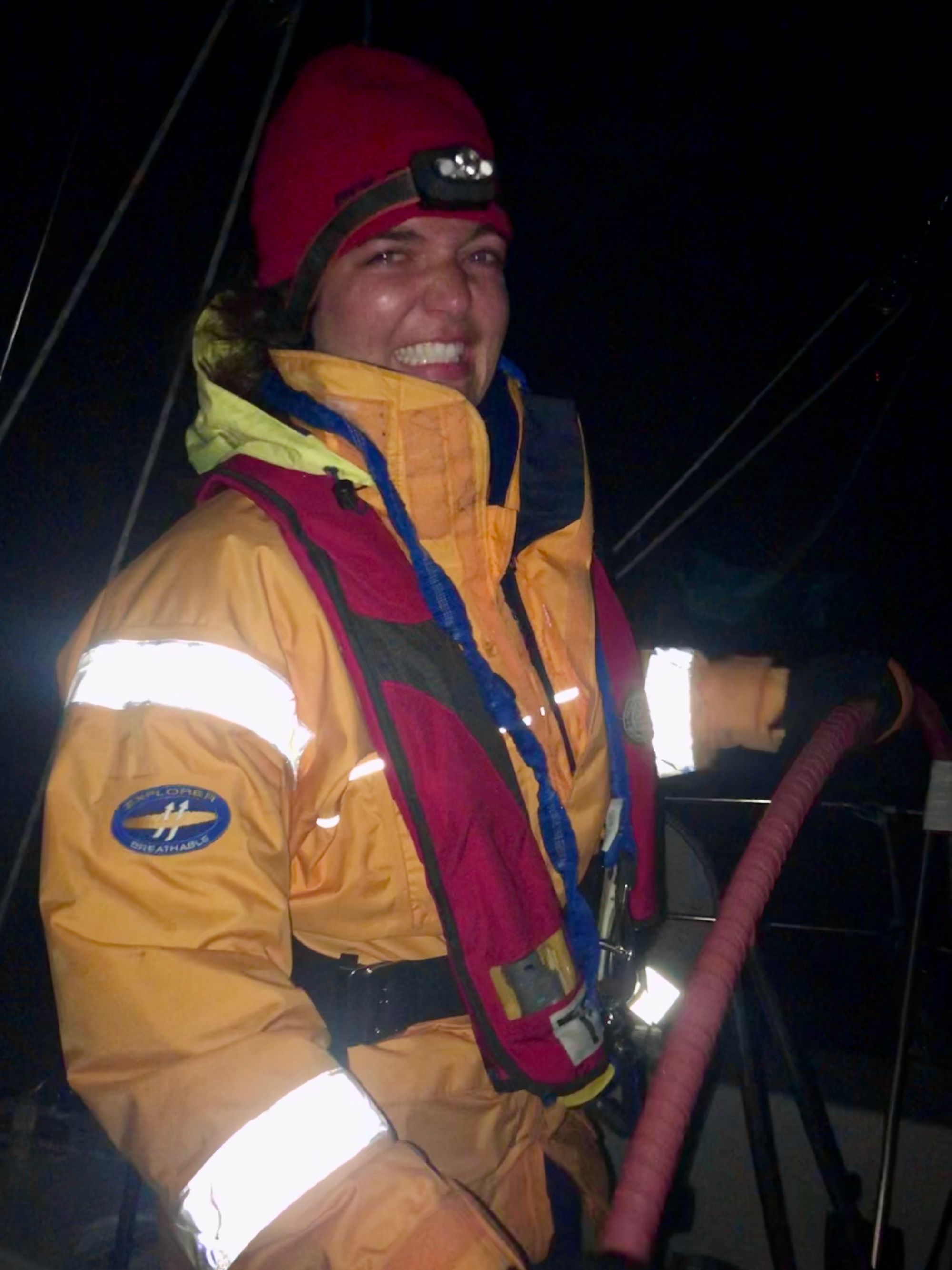
If you’re reading this because someone shared this newsletter with you or you clicked a link somewhere, welcome! I’d love it if you subscribed below to receive future updates:
